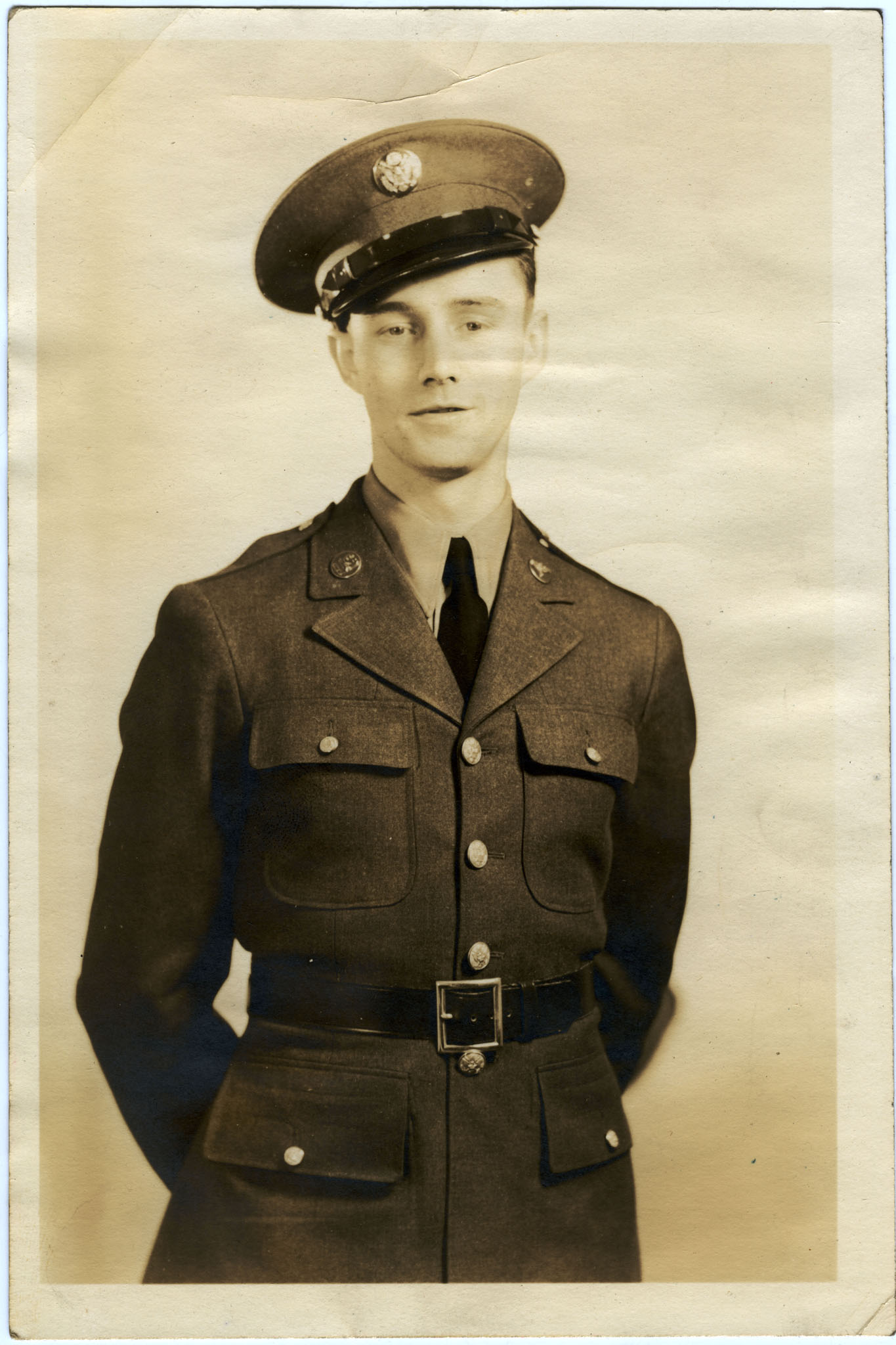William H. Freeman Collection

Attached to the 20th Air Base Group in 1941, Athol-native Bill Freeman was a first-hand witness to the beginnings of the war in the Pacific. Enlisting in the Army Air Corps in 1940, Freeman was stationed at Nichols Field in the Philippines when the Japanese invaded, and after taken as prisoner or war, he was forced on the Bataan Death March. Freeman died of malaria in Cabanatuan Prison Camp in July 1942.
The Freeman scrapbook and photograph album that Bill Freeman kept offer a visually-intensive perspective on the brief life of an American serviceman in the Second World War. Kept during and immediately after high school, the scrapbook includes notices of his musical performances and other activities; the extensive photograph album documents his service in the Army Air Corps from the start of deployment through his travels in Hawaii and Guam to the early months of his service in the Philippines. The collection also includes a letter written from the Philippines during the summer 1941.
Bill Freeman’s brief life came to a tragic end when he contracted malaria as a prisoner of war in the Philippines during the early years of the Second World War. The eldest of five children of Louis W. and Sarah V. Freeman, Bill was born on April 14, 1920, and raised in working class Athol, Mass. Despite the hardships of the Great Depression, his parents strung together a series of jobs that supported the family — his father working as a painter and factory watchman, his mother in a tool factory and at a restaurant — enabling Bill to continue in school. Known for his talent as a singer, he won an amateur night contest as a junior and was serious enough at his craft to study with the Fortier Music and Dramatic Studios in Worcester and to perform publicly in central Massachusetts as a bass soloist.
After receiving his diploma from Athol High School in 1938, Freeman made ends meet as a reeling worker at the Athol Manufacturing Company, a manufacturer of artificial leather, until the growing threat of war made him rethink his future. With war looming in both Europe and Asia, he left civilian life to enlist in the Army Air Corps on October 2, 1940, joining the 20th Air Base Group as part of the Far East Air Force. Stationed at Nichols Field in the Philippines early in 1941, Freeman was among the thousands of American and Filipino servicemen taken prisoner by the invading Japanese army, and although he survived the Bataan Death March, he succumbed to cerebral malaria at the Cabanatuan Prison Camp on July 10, 1942. He was reinterred and buried with his parents in Gethsemane Cemetery in Athol.
The Freeman scrapbook and photograph album that Bill Freeman kept offer a visually-intensive perspective on the brief life of an American serviceman in the Second World War. Kept during and immediately after his high school years, the scrapbook contains a handful of clippings and letters relating to Freeman’s talents as an amateur singer, including notices of his performances and other activities. Both extensive and visually engaging, the photograph album contains over two hundred images taken during Freeman’s service with the Army Air Corps, beginning with his departure for the Pacific from Charleston, S.C., through stays in Hawaii and Guam. The majority of images date from the summer and fall, 1941, when he was stationed at Nichols Field near Manila, and depict daily life at the air base, and recreation in town and the surrounding country. Finally, the collection includes a letter written home by Freeman during the summer 1941.
Gift of Virginia Garrand and Nancy Wonsey, Sept. 2015.
Processed by I. Eliot Wentworth, Sept. 2015.
Cite as: William H. Freeman Collection (PH 068). Special Collections and University Archives, University of Massachusetts Amherst Libraries.
